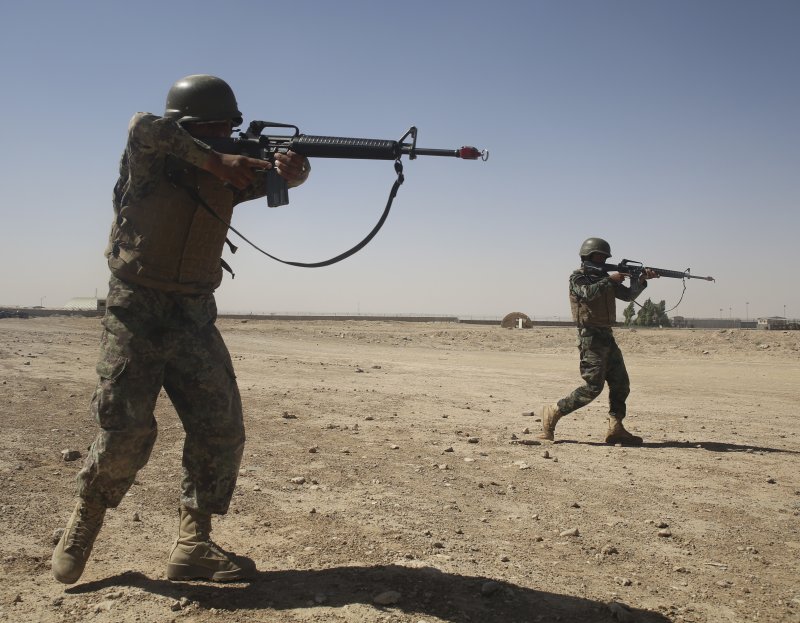According to a new report from the Special Inspetor General for Afghanistan Reconstruction, the Pentagon used an exception meant for security and continued to provide "select training, equipment, and other assistance to some of the Afghan units implicated" in incidents of abuse. Photo by Sgt. Lucas Hopkins/U.S. Marine Corps/UPI
Jan. 23 (UPI) -- The U.S. agency overseeing Afghanistan reconstruction said in a report Tuesday that the State and Defense Departments skirted U.S. human rights laws by financially backing Afghan security forces accused of abuses.
The report from the Special Inspector General for Afghanistan Reconstruction said that both departments sidestepped Leahy Laws, continuing funding despite credible allegations of "gross violations of human rights," including child rape.
Leahy Laws prohibit the agencies from providing financial support and military assistance to foreign security forces that violate human rights with impunity.
According to the report, the Pentagon used an exception meant for security and continued to provide "select training, equipment, and other assistance to some of the Afghan units implicated" in incidents of abuse.
The "notwithstanding clause" in the Afghanistan Security Forces Fund provision of the Department of Defense Appropriations Act is meant to allow the military to continue funding units accused of human rights abuses if it is determined to be required for security.
However, members of Congress found the use to be inappropriate and it was removed from the budget.
The new SIGAR report said 12 Afghan security force units implicated in 14 incidents in 2013 continued to receive support.
Nine other Afghan units were also implicated.
Until November 2011, military personnel were not required to report child sexual abuse by Afghan security forces. SIGAR also found that there were no guidelines for determining whether accusations were credible or when they should trigger the Leahy Law.
SIGAR found that U.S. Forces-Afghanistan did not issue clear guidance and training to personnel on how to report child sexual assault until a September 2015 report by the New York Times detailed rampant allegations of sexual abuse of children by members of the Afghan National Army and police forces. The Department of Defense's investigator general then started its own investigation.
In its report last November, the Pentagon's inspector general identified 16 allegations of child sexual abuse involving Afghan security forces reported by U.S. and Afghan troops from 2010 to 2016.















